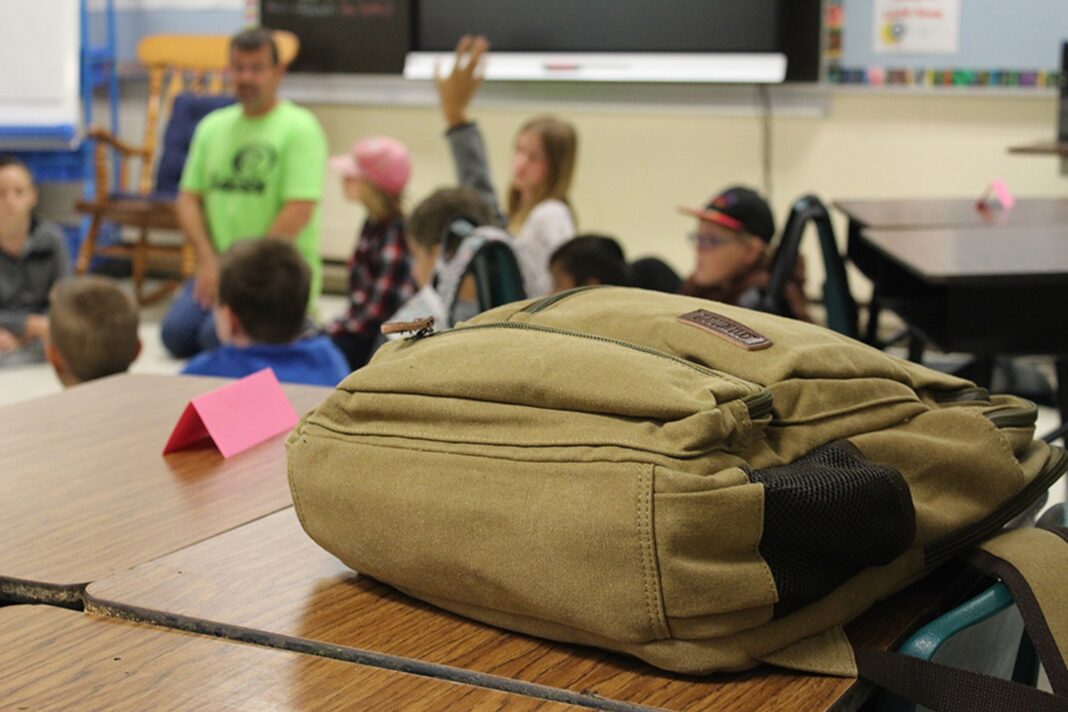With concerns over decreased student attendance, Trillium Lakelands District School Board (TLDSB) has launched a new pilot program at five schools in the region – including two in Haliburton County – designed to spark engagement in the classroom.
Speaking at a recent board meeting in Bracebridge, Wes Hahn, TLDSB director of education, said the program is designed for students with persistent absences. Staff works to assess reasons for absenteeism and implements individual site-specific solutions.
It was launched in September at J.D. Hodgson elementary, Haliburton Highlands Secondary School, Parkview Public School in Lindsay, Riverside Public School in Huntsville, and Grandview Public School in Bethany.
Associate superintendent Tanya Fraser noted the schools were chosen at random and aren’t necessarily those with the lowest student attendance. The board did not provide attendance figures for the participating schools.
“We are learning lots about the barriers students have in attending school regularly,” she said.
The program will run for the remainder of the school year. Each school has established “attendance champion teams” that Fraser says meets regularly with students and parents to set goals.
“It’s a separate meeting, not with their usual [teachers] and very personalized to each student,” Fraser said. “There’s been a shift from a punitive approach to absenteeism to a more supportive and understanding model… instead of saying ‘you must come every day, all day’ we’re talking to students and asking them what they think they can do. There’s some give and take.”
Hahn said he feels the program is about changing the culture for students who have issues with attendance. The board has brought in re-engagement and mental health counsellors to assist.
He noted students who are absent one day every two weeks end up missing a month’s instruction over the school year. There are students enrolled in the program missing multiple days per week.
The Ministry of Education has issued attendance benchmarks to boards this year, challenging schools to ensure students have an overall attendance of 90 per cent or more. Hahn said across TLDSB, 68 per cent of elementary-aged students are hitting that target, though only 46 per cent are for secondary. He noted inclement weather days, where school buses don’t run, are not included in those totals.
“We do not penalize students who cannot get to school on those days. Teachers don’t run regular lessons or anything like that,” Hahn said.
TLDSB communications lead, Carolynne Bull, said the board is “monitoring a more manageable threshold” for school attendance, at 80 per cent. In Haliburton County, 83 per cent of elementary and 84 per cent of secondary students are hitting that target.
Hahn said the board has been focusing on improving attendance for some time, hosting a series of student and parent forums last spring. Regular barriers include food insecurity, mental health issues, addictions, bullying, and feelings of anxiety and depression.
All secondary schools have started to track attendance period-by-period, with messages sent home for any absence.
“We know what the issues are and have started to address them,” Hahn said. “Interventions such as referrals to re-engagement or mental health counsellors puts parents and students in direct contact with support so they can receive help and, hopefully, remove those barriers for getting to school.
“Offering alternative academic programs is another avenue we’re pursuing. That way students don’t feel the burden of the weight of the world if they’ve been out of school for a long time. It’s about getting them back connected to school, completing assignments, and getting credits so they don’t feel so far behind,” he added.
Evolving instruction
Hahn said there’s been lots of talk about incorporating AI learning into the TLDSB curriculum.
“I know there’s been a lot of negatives on the impacts, particularly around plagiarism, but there are a lot of benefits to this,” he said. “We know the global economy and the world in general is moving forward with this kind of technology. We want to make sure our students and staff are moving along that same path.”
He said a few schools have already started with some introductory instruction.
Wanting to balance screen time with other methods, Hahn said the board is also moving ahead with a review of outdoor education. While schools have routinely organized trips to Camp Muskoka, Hahn said the board is looking at providing regular opportunities in other regions, such as Haliburton County and Kawartha Lakes.





